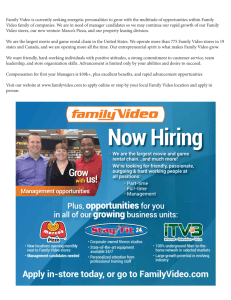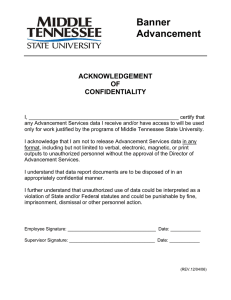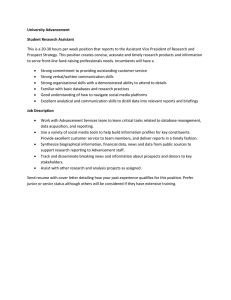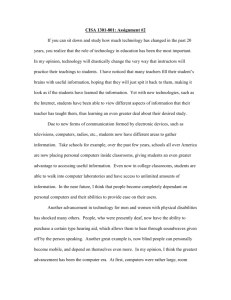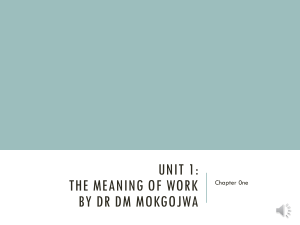Mayumi Oda CEP121. 2270 Professor Wright 4 November, 2008
advertisement
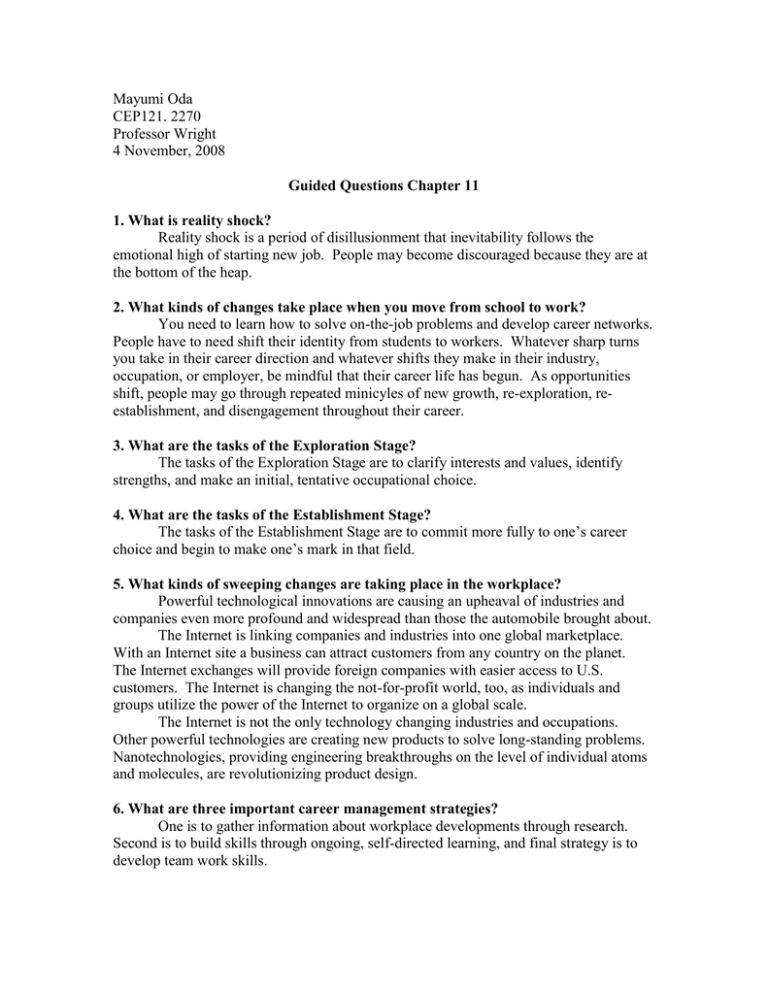
Mayumi Oda CEP121. 2270 Professor Wright 4 November, 2008 Guided Questions Chapter 11 1. What is reality shock? Reality shock is a period of disillusionment that inevitability follows the emotional high of starting new job. People may become discouraged because they are at the bottom of the heap. 2. What kinds of changes take place when you move from school to work? You need to learn how to solve on-the-job problems and develop career networks. People have to need shift their identity from students to workers. Whatever sharp turns you take in their career direction and whatever shifts they make in their industry, occupation, or employer, be mindful that their career life has begun. As opportunities shift, people may go through repeated minicyles of new growth, re-exploration, reestablishment, and disengagement throughout their career. 3. What are the tasks of the Exploration Stage? The tasks of the Exploration Stage are to clarify interests and values, identify strengths, and make an initial, tentative occupational choice. 4. What are the tasks of the Establishment Stage? The tasks of the Establishment Stage are to commit more fully to one’s career choice and begin to make one’s mark in that field. 5. What kinds of sweeping changes are taking place in the workplace? Powerful technological innovations are causing an upheaval of industries and companies even more profound and widespread than those the automobile brought about. The Internet is linking companies and industries into one global marketplace. With an Internet site a business can attract customers from any country on the planet. The Internet exchanges will provide foreign companies with easier access to U.S. customers. The Internet is changing the not-for-profit world, too, as individuals and groups utilize the power of the Internet to organize on a global scale. The Internet is not the only technology changing industries and occupations. Other powerful technologies are creating new products to solve long-standing problems. Nanotechnologies, providing engineering breakthroughs on the level of individual atoms and molecules, are revolutionizing product design. 6. What are three important career management strategies? One is to gather information about workplace developments through research. Second is to build skills through ongoing, self-directed learning, and final strategy is to develop team work skills. 7. Why is the boundary between work and personal life blurring? The new working arrangements offer more flexibility. With flextime, people gain the freedom to decide when to put in the hours and when to take time off. Moreover, an employer gains more access into your life. Many employees are now routinely on call. People may have to be available at odd hours to communicate with coworkers in different time zones, or work long hours over a weekend to meet a project deadline. Therefore, people must work harder to maintain their priorities and get their work done. They must not let work consume too much of their personal life or get so distracted by personal matters that they let project goals slip. 8. What are some of today’s cultural messages about work and advancement? Our culture emphasizes progress. It is good to move up on the job, to increase earnings, to be promoted to a higher rank, and to take on more responsibility. These are signs of success. The idea of career advancement is powerfully associated with being successful in our society. People are accorded prestige, status, recognition, and influence if they succeed in advancing at work. Yet, career decisions and behavior are not driven solely by cultural messages. Definitions of advancement show great diversity, and they have the freedom to define the term for themselves. As people establish their career, it is responsibility to come to their own personal definition of career advancement. It is useful to think about whether the career path they are choosing is in accord with their personal definition of advancement. In the course of defining advancement, they will come to terms with their own values and the degree to which they correspond with cultural expectations. It means looking again at economic and psychological needs and deciding what trade-offs they are willing to make.

